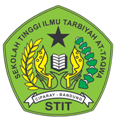Interpretation of Verses About Education
DOI:
https://doi.org/10.61166/classroom.v2i1.21Keywords:
Islamic education, verses about educationAbstract
Islamic education integrates the acquisition of knowledge with the development of character in accordance with religious teachings. Allah SWT's command to seek knowledge, as revealed in Surah Al-Alaq, emphasizes both worldly and spiritual knowledge. Islamic education is a lifelong obligation for all Muslims, regardless of age or gender, and must be applied in daily life to benefit individuals and society. This paper utilizes Library Research methodology, reviewing tafsir books and relevant literature to explore Islamic education from the Quranic perspective. Knowledge, both religious and secular, is valued in Islam, with scholars being regarded as the inheritors of the prophets. Islamic education is holistic, encompassing physical, mental, and spiritual development, and aims not only to educate but also to cultivate good character. Therefore, students are encouraged to pursue and apply knowledge earnestly in their lives.
References
Al-Qur'an al-Karim. (n.d.). Surah Al-Alaq (1-5).
Al-Qur'an al-Karim. (n.d.). Surah Al-Mujadilah (11).
Achmad Tifaza Alfarizi, Munir, & Rizki Farabi. (2025). Quran in the Digital Age. Al-Bunyan: Interdisciplinary Journal of Qur’an and Hadith Studies, 2(2), 116–126. https://doi.org/10.61166/bunyan.v2i2.24
Al-Buti, M. (2007). Fiqh Pendidikan Islam: Pemikiran tentang Pendidikan dalam Islam. Jakarta: RajaGrafindo Persada.
Al-Jabiri, M. (1996). The Formation of the Islamic Educational System: The Origins and Development of Islamic Education in the Arab World. Islamic Educational Sciences, 12(1), 55-78. https://doi.org/10.1080/00210823.1996.10369902
Ibrahim, M. (2013). Ilmu dalam Perspektif Islam. Yogyakarta: Pustaka Pelajar.
Junaedi Abdullah, & Iskandar Mirza. (2025). Integration of Tarbawi Tafsir Values in the Early Childhood Education Curriculum. Kasyafa: Jurnal Pendidikan Agama Islam, 2(1), 9–21. https://doi.org/10.61166/kasyafa.v2i1.40
Muhammad, A. (2004). Pendidikan Islam dalam Al-Qur'an: Perspektif dan Aplikasinya. Jakarta: PT. Rineka Cipta.
Muhammad Akmal Jauhar Rifqi, Andri Nirwana AN, Yeti dahliana, Kharis Nugroho, Ainur Ra’in and Syamsul Hidayat (2024) “Exploration of Misbah’s Tafsir on the Role of Education in Character Formation”, al-Afkar, Journal For Islamic Studies, 7(3), pp. 1034–1045. doi: 10.31943/afkarjournal.v7i3.1385.
Nasr, S. H. (2002). Islamic Education: Its Traditions and Modernization into the Contemporary World. In H. H. Nasr (Ed.), The Islamic Worldview: Islamic Studies, Vol. 1 (pp. 43-67). New York: Routledge.
Rasyid, F. A. (2019). Pendidikan Islam dan Perkembangannya di Dunia Kontemporer. Jurnal Pendidikan Islam, 23(4), 334-352. https://doi.org/10.22515/jpi.v23i4.1426
Sa'id, M. (2005). Tafsir dan Pendidikan Islam: Membangun Karakter Bangsa melalui Al-Qur'an. Bandung: Penerbit Mizan.
Downloads
Published
How to Cite
Issue
Section
License
Copyright (c) 2025 Salman, Iskandar Mirza

This work is licensed under a Creative Commons Attribution 4.0 International License.













